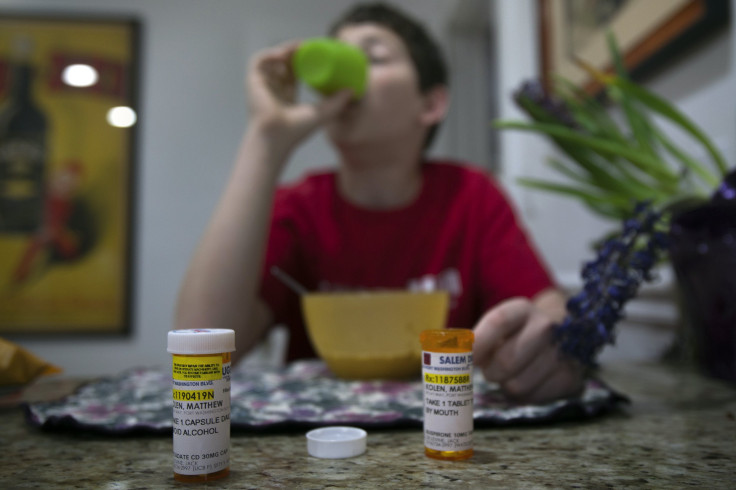Psychotropic Drugs For Infants: New Data Show Jump In Antipsychotics Prescriptions For Kids 2 And Under

Despite a lack of evidence of their effectiveness and concerns about health risks, the number of psychotropic drug prescriptions for children 2 years old and younger has jumped recently, new data show, the New York Times reported Friday. Such prescriptions rose 50 percent from 2013 to 2014, from about 13,000 to 20,000 prescriptions. The findings fit into a trend of increased antipsychotic prescriptions for children and adolescents, even as many question the long-term effects and risks.
Those numbers came from IMS Health — an information and technology services company focused on healthcare and headquartered in Connecticut — which conducted the analysis at the request of the New York Times. Psychotropic medications are a broad term for different classes of drugs used to treat mental illnesses. They include antipsychotics, which target schizophrenia and bipolar disorder, antidepressants, anti-anxiety drugs and other medications, according to the National Alliance on Mental Illness.
In recent years, children have increasingly been prescribed antipsychotic drugs, despite questions surrounding their effectiveness and the risk of doing greater harm than good. But among especially young children -- like infants or toddlers -- the evidence that these drugs work to treat behavioral issues like temper tantrums or unusual lethargy is even more thin. One study in 2012 found a twofold to fivefold increase in prescriptions of antipsychotic medications for children in preschool, "despite little information on their long-term effects."
One of the drugs that contributed to the spike in prescriptions was risperidone, which typically is used to treat symptoms of schizophrenia and bipolar disorder in teens and adults. It's also used to treat behavioral problems such as aggression or self-injury in teenagers, and in kids aged 5 to 16 who have autism, according to the National Institutes of Health.
Another drug that saw an increase in prescribing was quetiapine, which is used to treat symptoms of schizophrenia and depression in patients that have bipolar disorder. The National Institutes of Health says that quetiapine "may be used as part of a treatment program" for children and teens with bipolar disorder and schizophrenia.
The number of prescriptions does not necessarily equal the number of children affected, as some children can be prescribed several medications every year, but the exact causes of the spike remained unclear. Some experts wondered whether the medicines were even going to children at all or if they were instead being taken by a parent or someone else, the New York Times reported.
© Copyright IBTimes 2024. All rights reserved.






















